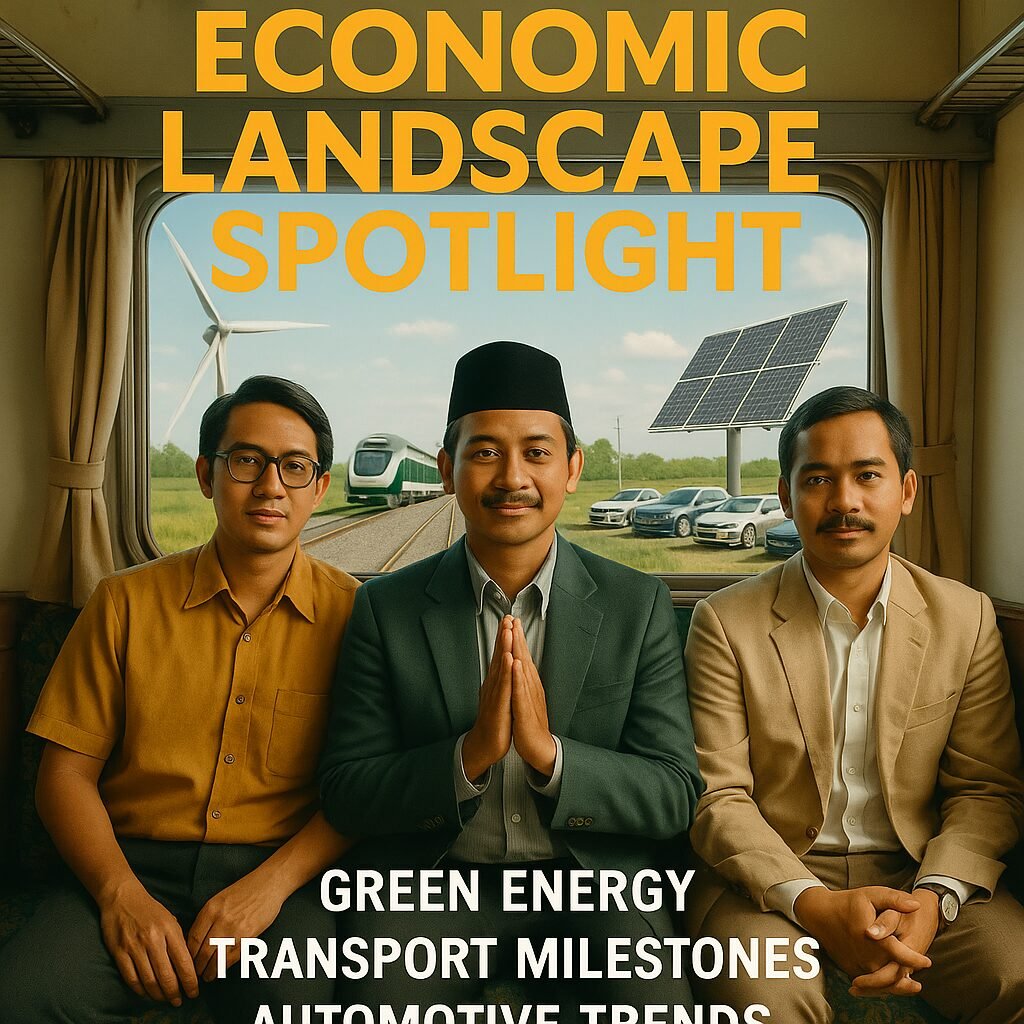- Energy Ministry surveys West Sulawesi's renewable potential, aiming to boost sustainable investments.
- Whoosh high-speed train hits 10-million passenger milestone, highlighting public demand for efficient transportation.
- Sale of Wuling Almaz RS Pro 1.5 in Jakarta reflects SUV dominance amidst global push for efficiency.

In a blend of green energy exploration, transportation milestones, and automotive market dynamics, today’s economic landscape presents a diverse yet interconnected picture.
The Energy and Mineral Resources Ministry is currently surveying and updating data on West Sulawesi’s renewable energy potential, according to ANTARA News. This initiative forms part of national efforts to transition towards more sustainable energy sources. As the world continues grappling with climate change, renewable energy sources have become a significant area of interest for both governments and businesses alike. Not only is the move to renewable energy critical in reducing greenhouse gases, but it also presents opportunities for economic growth and job creation. The results of the survey could spur investments in renewable technologies and infrastructure in West Sulawesi.
Meanwhile, in the realm of public transportation, the Whoosh high-speed train has recently hit a significant milestone. The operator, PT Kereta Cepat Indonesia-China (KCIC), announced that the service surpassed its 10-million passenger milestone. This achievement demonstrates a strong public interest and reliance on efficient, fast, and sustainable modes of transportation. It further emphasizes the importance of investing in advanced and sustainable transportation infrastructure to cater to the growing demand and to reduce our carbon footprint.
On a different note, the automotive market sees the sale of a 2021 Wuling Almaz RS Pro 1.5 in DKI Jakarta. The vehicle, an automatic SUV in a sleek gray finish, is priced at Rp 180.000.000. The Wuling Almaz, with its seven seating capacity and petrol fuel type, caters to a segment of consumers seeking spacious yet efficient vehicles. This sale offers a glimpse into the current trends in the automotive industry where SUVs continue to dominate consumer purchases despite the global push towards more fuel-efficient and smaller cars.
In conclusion, whether it’s renewable energy, transportation, or automotive sales, these sectors are deeply intertwined. The shift towards sustainable energy sources could influence the future of transportation, potentially leading to more electric trains and electric vehicles. Similarly, the popularity of certain vehicle types could impact fuel demand, subsequently affecting energy markets. As these industries continue to evolve, it will be interesting to observe how changes in one sector impact the others.

